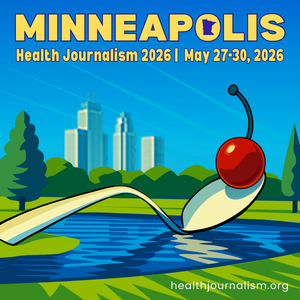By Hilary Powell and Cassie M. Chew
When the growth of digital media pushed rates for independent journalism from $2 to $3 per word to a fraction of that rate, Melba Newsome knew those arrangements wouldn’t support her ability to produce the in-depth investigative stories for which she had begun to make a name for herself.
So, she turned to other sources of funding.
“I started applying for fellowships that would allow me to dig into a story,” says Newsome, a 2023 Alicia Patterson fellow, two-time Pulitzer Center grantee and the recipient of a host of other national reporting fellowships that have enabled her to produce a volume of domestic and international coverage at the intersection of education, health and the environment.
In her most recent work, Newsome, who is based in North Carolina, produced two stories about climate displacement among people of color in urban cities in America and in Panama.
Newsome, along with independent journalists Meryl Davids and Cheryl Weinstock, who also are successfully navigating their careers in long-form and investigative journalism by securing journalism grants from nonprofits, shared their sage insights on securing high level reporting fellowships at the 2024 Association of Health Care Journalists convening in New York City in June.
The panelists all agreed that crafting a solid pitch is the key to securing funding for a reporting project. For some fellowships, an applicant may want to do some reporting before working on their pitch, says Meryl Davids, a 2023 recipient of the Ferriss-UC Berkeley Journalism psychedelic reporting fellowship.
“I did a lot of pre-reporting,” Davids said, describing her process for a story that ultimately ran earlier this year in which she interviewed a source before sitting down to write her pitch. While getting that pitch from 1,500 words down to the 500-word limit for the application was “torture,” Davids said, she made sure to keep the context of the story intact.
“It wasn’t just, ‘Here’s this program in Vancouver Island where people are taking psychedelics as a group who have a terminal diagnosis,’ but it’s, ‘Here’s the research showing people at the end of life have all these severe mental health anxiety issues,’” Davids said. “It’s very hard for them to continue living for however much time they have left in the way they want to because of
their mental health.”
Her pre-reporting for the pitch is what Davids, who is based in Florida, thinks closed the deal for getting the grant for her project.
For Cheryl Weinstock, who covers disparities in mental health care and suicide prevention, success at getting the attention of funders involves some required reading.
“Learn what the priority of the fellowship is so that you hit it right on the mark,” Weinstock said.
After deciding that she wanted to position herself as a journalist specializing in mental health and suicide reporting, Weinstock asked a mental health advisory board in her community if she could join and learn the issues at play, thereby becoming an embedded journalist for mental health care in Connecticut.
Through her participation in mental health coursework, she received specialized training that has improved journalistic coverage of mental health and helped Weinstock raise her profile among funders.
In 2023, Weinstock was awarded her latest fellowship — a $12,000 grant from the NIHCM Foundation to report on youth affected by the mental health crisis and adult suicide prevention.
“I was able to tell them why I’m uniquely positioned to take this fellowship, because I’ve done this course, and I’m embedded in a suicide group,” Weinstock said, suggesting that applicants spend a few years generating a substantial body of work before they begin applying to fellowships.
That body of work may come in handy as fellowships come in many different formats.
Some funders may require the applicant to submit recommendation letters from an editor or letter of commitment from a news outlet who is committed to publishing the work. Some grantors help grantees place their fellowship projects. Additionally, some fellowships provide support for training and mentors to help you develop the project.
Susan Ferriss of the Pulitzer Center advised applicants to keep in mind the caliber of journalists sitting on application review committees.
“A lot of us were reporters for many years and editors. Some of us were foreign correspondents. We also worked in daily newsrooms and in investigative newsrooms. Some people worked in broadcasting,” Ferris says, describing her team at Pulitzer Center which offers a variety of global, domestic and local fellowship programs for enterprise journalism.
Even though there is a “high bar” for fellowship applicants, Newsome offered encouragement.
“Don’t be dismayed,” said Newsome, who has since created her own fellowship program to support epistemic environmental programming. “If you get it published regularly, you will probably do well.”
But again, it all comes down to the pitch. When contemplating a fellowship, applicants should pitch a story as opposed to a topic and don’t pitch what’s currently in vogue.
“Be aware of the Zeitgeist,” Malia Wollan of UC Berkeley said, describing what happened one year in a call for longform reporting projects on food and farming.
“In 2012, everyone was talking about quinoa,” Wollan said. “We got 15 pitches about quinoa. By the time people read through the 15 pitches about quinoa, there was no way that any quinoa pitch was going to be selected.”
Hilary Powell an award-winning independent video journalist based in Washington, D.C. She is a Freelance Health Journalism Fellow.
Based in the nation’s capital, Cassie M. Chew covers health care policy for a variety of news outlets.





